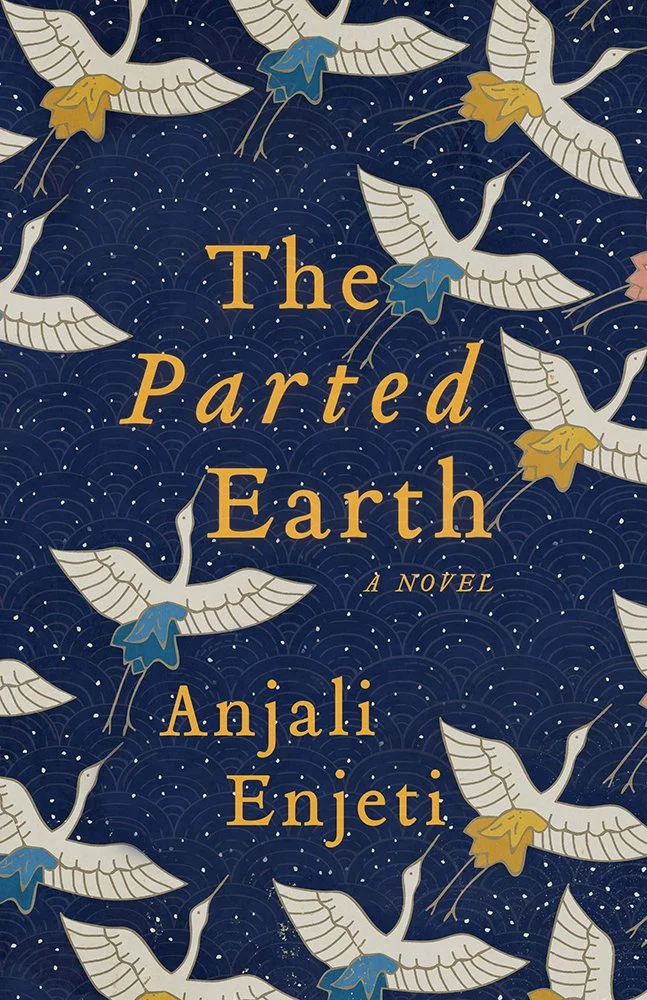Anjali Enjeti
Anjali Enjeti
Debut Novel / Radio Interview
The Parted Earth
Hub City Press / “City Lights,” WABE, NPR
June 3, 2021
When Britain ended its occupation of India in 1947, the withdrawal was messy, violent and rife with tragedy. The region was divided into majority-Muslim Pakistan and majority-Hindu, modern-day India. In tribute to the more than 1 million who died, the survivors and the descendants of the partition, Anjali Enjeti has written the novel “The Parted Earth,” a sweeping narrative that incorporates poetry and multigenerational timelines.
She joined Shelley Kenneavy on WABE’s City Lights via Zoom to discuss and share excerpts from the story, its embedded poems and history:
“It is such a tumultuous and disruptive time for all these characters, and, of course, many of them have been living in harmony for many years,” said Enjeti. “Of course, there have always been tensions, and strife and wars between the various religions that inhabited the subcontinent, but this accelerated, this was heightened due to British colonization of India. It is the colonization that made these differences so apparent, and … that capitalized on the differences in culture, community and faith. It really was a severance of what was then known as Indian identity. And so what is happening at this time is grief.”
In an overview of the story’s first timeline, Enjeti recounts, “Deepa is a 16-year-old Hindu girl who lives with her parents … and she is starting to feel the effects of the partition of her homeland. She’s coming to understand the fact that everyone she knows and loves, who is Muslim, is going to have to move, they’re going to have to abandon everything they’ve ever known, their homes, their communities.”
Deepa meets and falls in love with Amir, a boy her age. The two communicate through artwork left for each other to discover — Deepa writes poetry, and Amir makes origami.
Enjeti shared excerpts from the poems Deepa creates.
“Personally, I find poetry, generally speaking, to be a great healer of traumas,” Enjeti said. “There is no adequate language to describe what is happening to their lives; there is no language to describe the kind of violence and hostility that they’re facing … and it’s poetry that gives these characters the space to process what they are witnessing.”
Listen to the conversation between Shelley Kenneavey and Anjali Enjeti in its entirety, visit WABE.
SEE ALL NEWS FROM OUR FELLOWS

